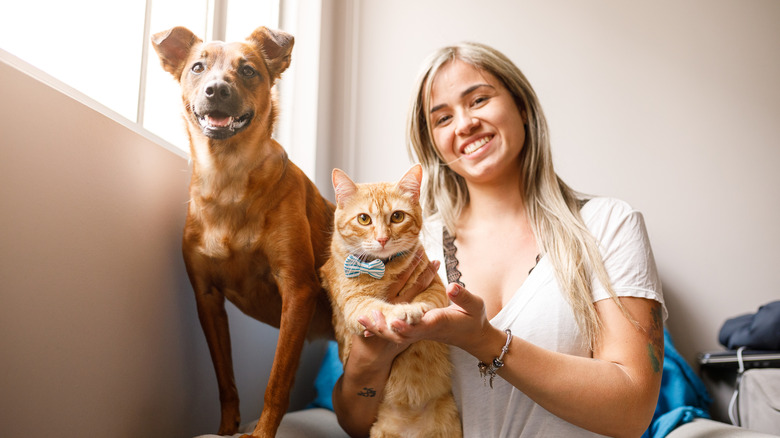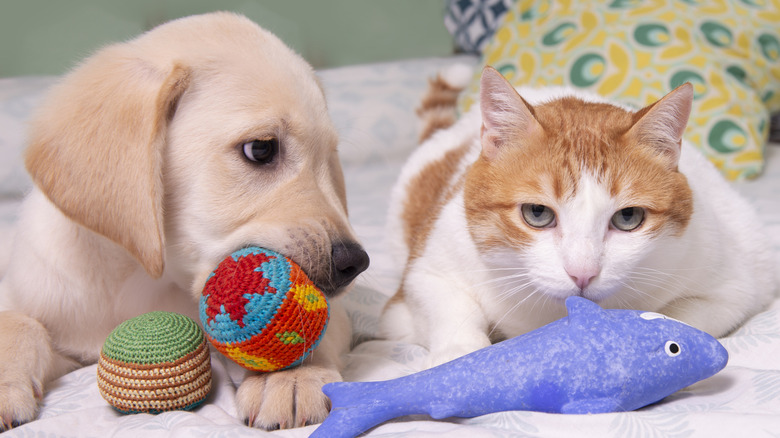The Sad Reason Gen Z Is Adopting So Many Pets
Generational gaps can influence how people pet parent. Baby boomers tend to take a more practical and traditional approach to ownership. At the same time, younger generations are more likely to adopt titles such as "dog mom" or "cat dad" and emphasize aspects like the mental health of their furry companions. Comparing different generations and determining which is best is subjective, but when examining the broader implications of trends, Gen Z's rise in pet ownership reveals a concerning truth.
Gen Z faces financial struggles and is more likely to remain single than previous generations. A recent survey conducted by Deloitte, which received responses from over 23,000 Gen Z and millennials, reported that Gen Z had cost of living as their top concern at 42%, with 43% expressing anxiety over daily finances. Regarding people remaining single, Robert VerBruggen of the Institute for Family Studies spoke with Newsweek about attitudes toward marriage, stating, "As marriage has been pushed later into life, our culture has glamorized the single life and made it unremarkable for people to be single for longer."
Growing concerns about AI replacing jobs, a shift in how Gen Z consumes media, and new perspectives on traditional family roles are all factors behind these changing trends, as well as a growing focus on pets over family. Yet, these shifts with Gen Z are not entirely negative, as the focus on pet care and services has grown substantially.
Gen Z is pushing the pet industry forward
No matter which generation you belong to, a love for furry, feathered, or scaly companions serves as common ground. Dressing a sleepy dog in a onesie or buying a cat tower and eagerly waiting to snap a picture of them using it are universal joys. Yet, Gen Z leads the way in purchasing those onesies and cat towers, spending more than any other generation, around $178 per month on their pets in 2024. With Gen Z's purchasing power and the number of pets owned, approximately 18.8 million pets in the U.S. in 2024, they are positively reshaping the pet economy.
In a report published by Indeed, veterinary jobs have seen high demand, topping the chart as the most viable career with a 124% increase in job postings between 2021 and 2024. Interest in traveling with pets is also on the rise, with the pet service industry valued at $2.04 billion in 2024 and projected to reach $3.32 billion by 2029. Pet therapeutics and general pet health have also been growing markets, driven by the increasing and evolving views of Gen Z and their approach to pet ownership.
An increase in pet ownership over family can be negative, with many feeling that the option of raising a family is taken away from them by external factors. Still, for those who want the best for animals of all sizes and shapes, the care and development of happy pets have never been more prevalent and celebrated.

